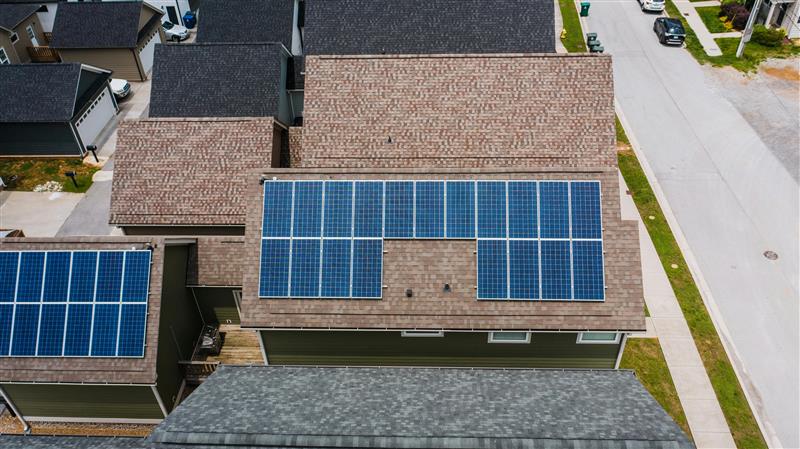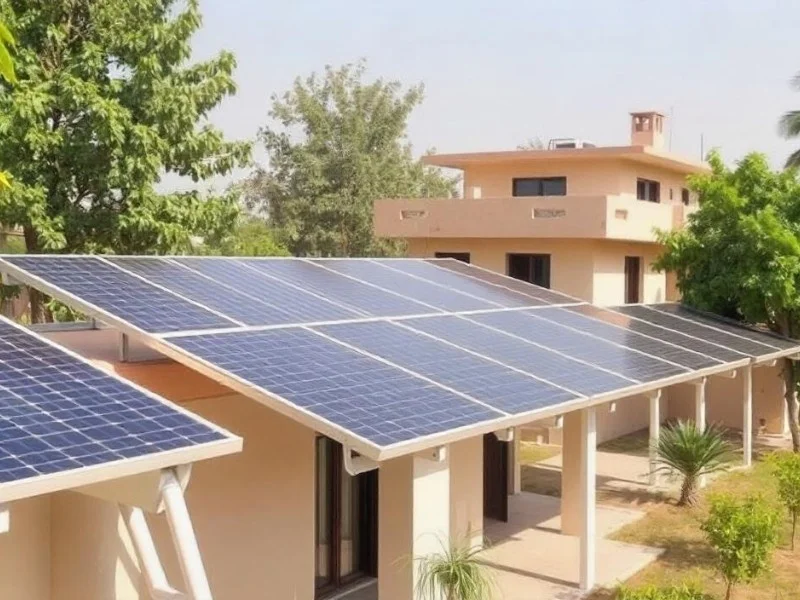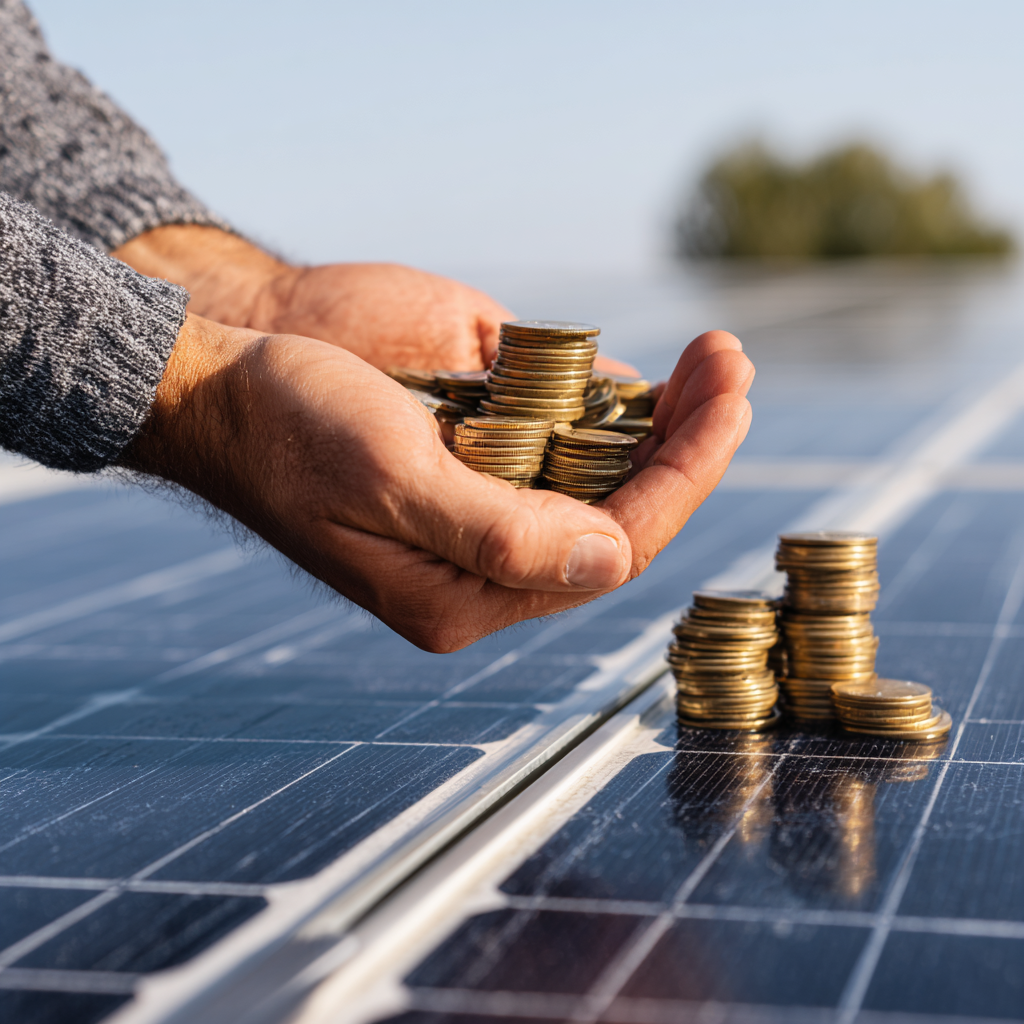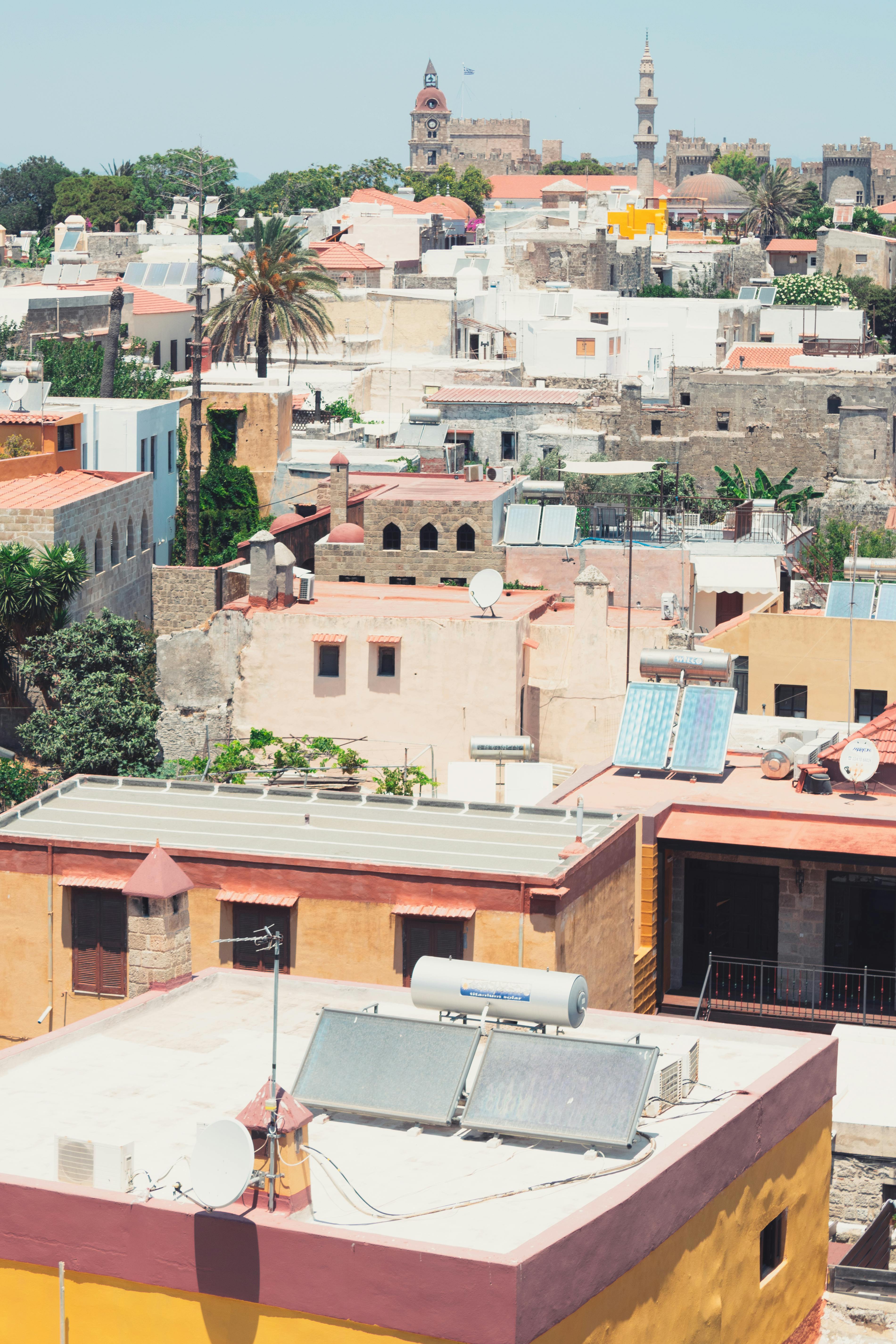How Should You Pay for Solar? Loan or Cash?
Going solar is one of the smartest long-term financial decisions a homeowner can make. But before you take the leap, the most important question is: How will you finance your solar system?
Solar promises long-term energy efficiency, savings, and independence but the initial investment requires financial planning. Should you choose solar loans in India or make a direct cash payment? The choice affects your monthly budget, long-term savings, and how quickly you recover your solar panel ROI in India.
While several solar financing choices exist government subsidies, leases, and PPAs the two most popular ones are solar loans and upfront cash payments. Let’s break them down to help you make the right decision.
.jpg)
Solar System Loans
Solar loans allow you to finance a rooftop solar system with a minimal down payment through trusted NBFCs and banks. You can install the system and pay over time through a fixed EMI. So, if you want to unlock immediate access to solar power at a minimal initial cost, a solar loan might be your best bet. Let’s explore the pros and cons.
Pros of Solar Loans
1. No large upfront cost: The upfront cost in solar loans in India is minimal, making it one of the most accessible solar financing options. With a low down payment and trusted partners, you can go solar without draining your savings.
2. Immediate energy savings: With solar EMI schemes, you get instant access to solar energy and start saving on your electricity bills from day one. The low EMI amount ensures positive cash flow. Once the EMIs end, you enjoy free electricity for the system’s remaining lifespan.
3. Fixed EMI: Utility rates on conventional energy fluctuate monthly and will likely rise over time. A solar loan, however, gives you a fixed EMI that doesn’t increase, ensuring long-term budget certainty and protection from future rate hikes all while helping you meet your sustainability goals affordably.
4. Ownership and incentives: Unlike leases or PPAs, solar rooftop loans give you complete ownership of your solar system. You enjoy all the financial benefits without paying upfront. Additionally, the interest and principal paid is eligible for tax benefits or deductions.
Cons of Solar Loans
1. Interest on rooftop solar loan: Like any loan, a solar loan comes with interest. Over time, you’ll pay more than the system’s base cost, extending the payback period.
2. Credit history matters: Your credit score can affect your eligibility for a solar loan. While many lenders now cater to diverse profiles, loan approval can still be uncertain. If your EPC isn’t directly involved, the process may also become time-consuming.
3. Lien on property: Some solar system loans are secured, allowing lenders to place a lien on your property until repayment. In unsecured loans, the solar equipment itself serves as collateral.
Always opt for a trusted national bank or Non-Banking Financial Companies (NBFCs) when availing a loan for solar or simply connect with an authorized EPC. In addition to that, use a solar savings calculator and carefully review loan terms properly before committing.
Upfront Cash Payment
Paying cash as solar panel financing is the simplest and quickest way to go solar. You pay the complete cost of the system and installation upfront just like any other household purchase. But like all options, it has its own set of pros and cons. Let's take a look:
Pros of Paying Cash
1. Immediate ownership: Like solar loans, paying cash gives you full ownership, but with the added benefit of zero debt, no EMI for solar panels, and no lien on your property. It’s clean, hassle-free ownership that simplifies personal finances from day one.
2. Long-term savings and high ROI: The biggest reason people prefer upfront payment is the maximum ROI. With no loan, there’s no interest; so, you pay the system’s actual cost, not a rupee more. The payback period is shorter, leading to higher solar energy savings in India.
3. Increased property value: Homes with fully owned solar systems have higher market value compared to leased or financed solar systems. A fully paid solar system is a valuable asset that promises lower energy costs from day one.
Cons of Paying Cash
1. Significant upfront cash: Having to pay a huge upfront cost is the most obvious disadvantage of this option. Using savings or liquidating assets for solar investment may not be feasible for everyone and can impact one’s long-term financial flexibility.
2. Opportunity cost: The money used for solar panel financing could potentially be invested elsewhere. Some believe investing in stock markets or other ventures can yield higher returns, even after factoring in EMI for solar panels and interest costs. So, opportunity cost must be carefully considered when investing in solar.
3. Delayed switch to solar: If you currently don’t have the necessary funds but wish to pay cash, your solar journey may be delayed. This means missing out on potential solar energy savings in India that could have already begun.
Why Working with an Authorized EPC Matters
There’s no one-size-fits-all answer to the best solar financing option. The ideal choice depends on your goals, available incentives, and long-term savings expectations. What truly helps is guidance from an authorized EPC. EPCs understand the system inside-out, simplifying documentation, speeding up approvals, and helping you maximize solar energy savings in India.
While you can independently use a solar savings calculator or research about government solar subsidies and solar EMI schemes, an experienced EPC can help you interpret these details and make a smarter decision faster.
Final Thoughts
Whether you choose a solar rooftop loan or upfront cash payment, ensure you have financial clarity before you proceed. Ask the right questions, understand your payback period, and evaluate your long-term goals.
At Aerem, we offer transparent solar loans in India, flexible EMI schemes, and reliable financing options to help homeowners maximize their savings and adopt solar with confidence.

.webp)
.webp)
.webp)







.jpg)
.jpg)




.jpg)





.jpeg)












.jpg)


.png)
.png)
.png)
.png)
.png)
.png)


.png)


.jpg)
